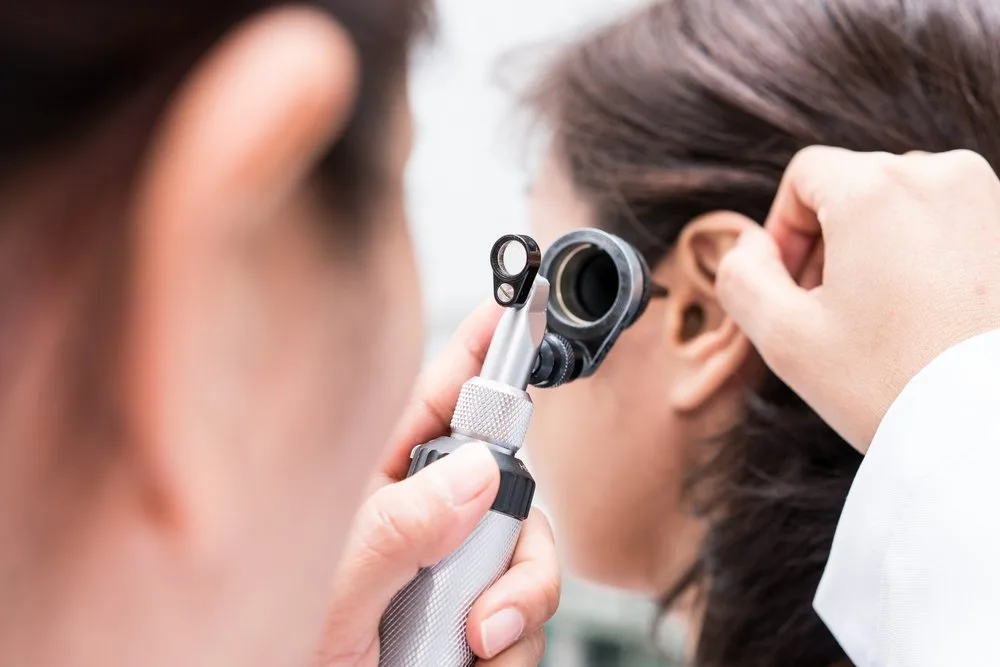According to the World Health Organisation, around 55 million people worldwide are living with dementia. With an average mortality risk that is 2.6 times higher than that of people in the same age group without dementia, researchers and experts are attempting to better understand and mitigate the risks associated with dementia. One of the factors that may increase dementia risk, according to recent research, is hearing loss.
The World Is Hard Of Hearing
Over 1.5 billion people are currently living with hearing loss across the world, and in the United States, the health issue affects two-thirds of Americans over 70. What’s more, the Centres for Disease Prevention and Control (CDC) notes that hearing loss is the third most common chronic physical condition in the United States and it is twice as prevalent as diabetes or cancer.
Speaking to VeryWell, Dr. Brian Kaplan, MD, an otolaryngologist and chairman of the Department of Otolaryngology at the Greater Baltimore Medical Center, shared that hearing loss is a progressive condition that happens slowly,
“There are five degrees of hearing loss: mild, moderate, moderately severe, severe, and profound,” said Kaplan.
“Each level considers where sounds fall in loudness level and frequency scale for what you can and cannot hear.”
Hearing loss can increase the risk for depression and isolation, the latter being caused by hearing loss making conversations difficult. It is important to address hearing loss early on to prevent these negative consequences. Alexander Audiology provides comprehensive hearing evaluations and personalized solutions for hearing loss. Additionally, hearing loss has also been associated with cognitive decline, and a recent study even suggests that it may influence one’s likelihood of developing dementia. Therefore, taking care of your hearing health through regular check-ups and appropriate interventions is crucial for maintaining overall well-being.
How Does Hearing Loss Influence Dementia Risk?

Lightspring/Shutterstock
In a research letter published in the Journal of the American Medical Association, experts analyzed the relationship between hearing loss and dementia.
Lead author Alison Huang, Ph.D., MPH, and her team from the Bloomberg School analyzed a nationally representative dataset from the National Health and Aging Trends Study (NHATS).
The data consisted of 2 413 individuals, half of whom were over 80. Upon conclusion, Huang and her team noted a strong correlation between the severity of hearing loss and dementia. The research revealed that those with moderate-to-severe hearing loss faced a 61% higher risk of developing dementia than those with normal hearing.
“This study refines what we’ve observed about the link between hearing loss and dementia, and builds support for public health action to improve hearing care access,” said Alison Huang, Ph.D., MPH.
How does your hearing affect your brain?
According to audiologist Nicholas Reed, there is evidence that supports the theory that hearing loss causes structural brain changes,
“You are not getting input to keep your brain robust, so you may develop atrophy in areas, leading to dementia,” says Reed. Reed adds that the overexertion the brain experiences due to one being unable to hear can cause fatigue, which then lays the groundwork for trouble with thinking and memory.
Reed adds that individuals with hearing loss may withdraw from social events, which can also add to the dementia risk, as sociability has been found to help stave off dementia.
Can Hearing Aids Help?
Granted, the study did note that hearing loss can be a risk factor for dementia. However, it also found that the use of hearing aids may help mitigate the risk.

Photo by Mark Paton on Unsplash
According to Huang’s findings, hearing aids were associated with a 32 percent reduced prevalence of dementia in participants who had moderate/severe hearing loss.
Protection from hearing loss and dementia
If you’re concerned about your risk for dementia, Reed advises that you stay social and active. In terms of hearing loss, he recommends addressing the issue as soon as you notice a change in your hearing.
Signs of hearing loss can include:
- difficulty hearing other people clearly.
- asking people to repeat themselves.
- listening to music or watching TV with the volume higher than other people need.
- difficulty hearing on the phone.
- finding it hard to keep up with the conversation.
If you begin to exhibit any of the aforementioned signs, then go in for a hearing test. In any case, it is recommended that you have your hearing tested every three to five years.
Want to know more?
Hearing loss isn’t just a concern for older people. In fact, thanks to their music-listening habits, a billion young people are at risk of hearing loss.
References
Huang AR, Jiang K, Lin FR, Deal JA, Reed NS. (2023). Hearing Loss and Dementia Prevalence in Older Adults in the US. JAMA. 329(2):171–173. doi:10.1001/jama.2022.20954
Piovezan, R. D., Oliveira, D., Arias, N., Acosta, D., Prince, M. J., & Ferri, C. P. (2020). Mortality Rates and Mortality Risk Factors in Older Adults with Dementia from Low- and Middle-Income Countries: The 10/66 Dementia Research Group Population-Based Cohort Study. Journal of Alzheimer’s disease : JAD, 75(2), 581–593. https://doi.org/10.3233/JAD-200078





![women [longevity live]](https://longevitylive.com/wp-content/uploads/2020/01/photo-of-women-walking-down-the-street-1116984-100x100.jpg)









